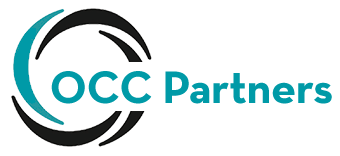9 Resume Mistakes that Recruiters Hate!

Recently I did the calculations of how many resumes I’ve looked at over the years, and having been a recruiter for 15 years, I realized I’ve reviewed over two million resumes. Sound like a lot? It is, and as a result, recruiters get fast at looking at them and finding the good ones. So, how much time do I spend looking at each resume? Well in 2012, The Ladders published a survey of recruiters over a six-week period and they concluded that recruiters spend on average six seconds reviewing a resume, according to the The Ladders Eye Tracking Study, and while that seems unbelievable, when I consider the quantity of resumes I see, compared with the number of positions I’m recruiting for at any given time, I realized I move through them quickly and six seconds may be accurate.
So, to make sure your resume gets a longer look, avoid some commonly made mistakes that recruiters hate. Here’s a list of the most common mistakes.
1. Overcrowded resumes and small print are too boring to bother with.
Formatting is important, include a lot of white space, so your resume is easy to read on a computer. Small print, unusual formatting, and a lot of text lands your resume in the discard pile quickly.
And for corporate, technology and business roles, use a straightforward chronological resume. Creative businesses and professionals prefer a more creative resume and academia prefers a less expressive resume than the business format. Adjust accordingly.
2. Functional resumes don’t hide anything.
Recruiters are seasoned readers of resumes and they know why you’re using a functional resume, because you don’t have recent relevant skills or you have an employment gap, so why do it? It’s a big red flag that you’re hiding something. Instead, use a chronological resume because first, it’s easier and faster to read and second, it will get a longer look right from the start. If your relevant skills aren’t reflected in a recent role, then include relevant skills that you have used recently in your accomplishments at your jobs, even if they weren’t essential to your role. It may not be a perfect solution for the role you want, but these additional skills demonstrate your job may not have been a perfect fit for this job, but you may be. And, if you have employment gaps, be transparent – after all, no one is perfect. But include what you’ve been doing during the gap with volunteer activities, education, or provide an explanation such as ‘personal leave, medical leave, or family leave of absence’.
3. Objective statements are ‘old school’.
Objective statements are challenging to write, and can sometimes hurt your chances of being a contender for a job you want if your objective statement doesn’t match what the company is looking for. I’ve seen individuals include an objective statement that says, ‘Seeking a large stable organization to grow with’, and then sent it to a small start-up that’s in constant change. If I like their background, sometimes the hiring manager kills their chances, just because of the limiting objective statement.
4. Summaries that don’t tell anything about you fall flat.
Summaries should include your strengths, with statements such as ‘takes initiative’ or ‘motivated’ or ‘analytical’. And should also include work strengths, such as ‘agent of change’ or ‘delivers results’. Companies don’t want to know just what you’ve done, but want a glimpse into who you are.
5. Resumes with no bullet points, too many bullet points, or ALL bullet points, are pointless.
 Use bullet points to highlight your accomplishments, not your job responsibilities. Responsibilities are ‘what’ they hired you for, basically your job description. But what you ‘actually’ did on the job, anything you did that was special or unique, well that’s your accomplishments – from the time you stayed late to insure a project was done well and met a tight deadline, to a period or year where you were the top performer on a sales team. Or maybe you found errors in 13% of the data you reviewed, or saved the company 7% for an idea you implemented. These are the bullet points recruiters and hiring managers want to see. Don’t waste your time and everyone else’s with useless bullet points that just reiterate your job description.
Use bullet points to highlight your accomplishments, not your job responsibilities. Responsibilities are ‘what’ they hired you for, basically your job description. But what you ‘actually’ did on the job, anything you did that was special or unique, well that’s your accomplishments – from the time you stayed late to insure a project was done well and met a tight deadline, to a period or year where you were the top performer on a sales team. Or maybe you found errors in 13% of the data you reviewed, or saved the company 7% for an idea you implemented. These are the bullet points recruiters and hiring managers want to see. Don’t waste your time and everyone else’s with useless bullet points that just reiterate your job description.
6. Too many jobs and too much information gets boring in less than 6 seconds.
Focus your resume on the roles you’ve had that are relevant, keeping non-relevant positions to a minimum. And don’t include older positions if you’ve worked more than ten years. Your resume is an advertisement of you, not an application, so it doesn’t need to include everything. And no one wants to read your entire career history. If they’re interested in what they see on the resume, they can learn more once they meet you.
7. Resumes that are too broad feel like a waste of time to read.
Individualize your resume by creating three or four that will fit specific jobs. Remember the recruiter is reviewing as many as 500 resumes for the position you want, so if your resume is relevant, you’re more likely to be asked to interview.
8. ‘References are available upon request’…we know that, so skip it.
9. Buzzwords and industry jargon make your resume difficult to read.
Use jargon only when you absolutely must. If you’re in an industry that has specific jargon and have transferable skills to another industry, using industry jargon, moves your resume to the ‘not considered’ pile quickly, when you may be a strong candidate. But rephrasing industry specific statements to more generic statements will inspire interest for the recruiter to read on.
Consider why recruiters read resumes so quickly, they’re working on behalf of the hiring manager and the company, and know what specific skills or traits they are looking for, so the more compelling you can make your resume, the more likely you’ll stand out from the others. And if you took the time to apply for a position, and now want the recruiter and manager to take the time to read your resume, then take the time to draft a resume they want to read.





 If they respond they can’t increase the offer, you should be prepared with a smaller ask, such as a professional development class that will benefit you.
If they respond they can’t increase the offer, you should be prepared with a smaller ask, such as a professional development class that will benefit you.
 If you’re not doing it already, start immediately. Networking should be an integral part of your career, and is critical when you’re in a job search.
If you’re not doing it already, start immediately. Networking should be an integral part of your career, and is critical when you’re in a job search. When you least expect it, you’ll be asked what you do or what you want to do. Be ready and be concise, zero in on what you do and what you want to do. Your story should take less than thirty seconds to tell.
When you least expect it, you’ll be asked what you do or what you want to do. Be ready and be concise, zero in on what you do and what you want to do. Your story should take less than thirty seconds to tell. Job search should be viewed as a project, and potentially the most important project you work on at any point in time. Like all good project managers, develop a plan and schedule, work the plan, and stay on target. Good project management skills will keep you organized when you’re juggling multiple interviews and roles, and interviewing with several companies.
Job search should be viewed as a project, and potentially the most important project you work on at any point in time. Like all good project managers, develop a plan and schedule, work the plan, and stay on target. Good project management skills will keep you organized when you’re juggling multiple interviews and roles, and interviewing with several companies.

 Cover letters? Yes, you should include one with your application. Will it get you an interview? Likely not, but by including a cover letter you demonstrate to the hiring manager you’re thorough and have solid written communication skills.
Cover letters? Yes, you should include one with your application. Will it get you an interview? Likely not, but by including a cover letter you demonstrate to the hiring manager you’re thorough and have solid written communication skills. A good cover letter should be short, related to the job, and asks for a meeting. Keep it to 250 words or less. Most employers are interested in the ‘shorter the better’ approach to cover letter writing. If that seems too brief, just remember: What you need to include in your cover letter is the job you want to fill, the reason you would be a good fit, stated simply and concisely, and an invitation for a meeting.
A good cover letter should be short, related to the job, and asks for a meeting. Keep it to 250 words or less. Most employers are interested in the ‘shorter the better’ approach to cover letter writing. If that seems too brief, just remember: What you need to include in your cover letter is the job you want to fill, the reason you would be a good fit, stated simply and concisely, and an invitation for a meeting. A good cover letter can help you make a positive first impression quickly. It demonstrates to the prospective employer your written communication skills. Either include the cover letter with your resume when you apply or send a separate cover letter directly to the hiring manager with your resume, if you have their contact information. And, either format works, email or regular mail. Both are equally appropriate in business.
A good cover letter can help you make a positive first impression quickly. It demonstrates to the prospective employer your written communication skills. Either include the cover letter with your resume when you apply or send a separate cover letter directly to the hiring manager with your resume, if you have their contact information. And, either format works, email or regular mail. Both are equally appropriate in business.

